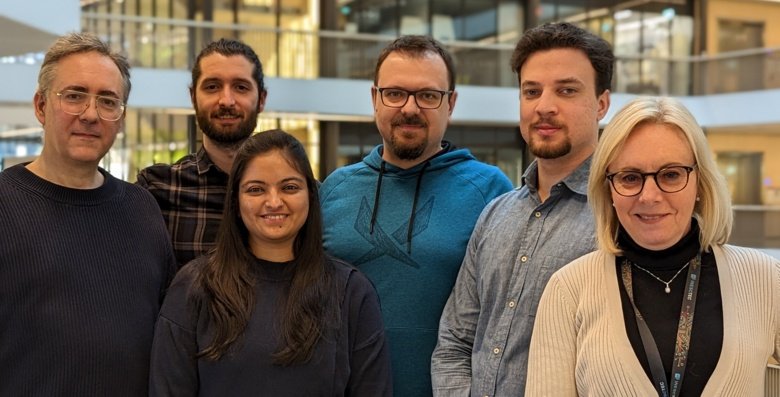Genetic study: Unexpectedly high variation in T-cell receptor genes between persons

Researchers from Karolinska Institutet have discovered that the genes encoding our T cell receptors vary greatly between persons and populations, which may explain why we respond differently to for example infections. The findings, presented in the journal Immunity, also demonstrate that some gene variants are inherited from Neanderthals.
T-cells that are part of our immune system are central in the protection against infections and cancer. With the help of TCRs, the cells recognize foreign invaders and tumor cells.

“It was previously unknown how variable human TCR genes are”, says Gunilla Karlsson Hedestam, professor at the department of microbiology, tumor and cell biology at Karolinska Institutet and the study's lead author.
Persons from different parts of the world were included
Using deep sequencing of blood samples, the researchers examined TCR genes in 45 people originating from sub-Saharan Africa, East Asia, South Asia and Europe. The researchers showed that these genes vary greatly between different persons and population groups. The results were confirmed by analyses of several thousand additional cases from the 1000 Genomes project.
“We found that every individual, other than identical twins, has a unique set of TCR gene variants. These differences reveal possible mechanisms underlying the wide range of responses to infections and vaccines that we observe at the population level”, says Martin Corcoran, the first author of the study.

“We discovered 175 new gene variants, which doubles the number of known TCR gene variants. An unexpected and surprising finding is that certain gene variants originate from Neanderthals and one of these is present in up to 20% of modern humans in Europe and Asia.”
Gunilla Karlsson Hedestam explains that the variation in these genes cannot be detected with the standard methods used in whole genome sequencing, but with the development of specialized deep sequencing methods and analysis software that allow highly precise definition of B- and T-cell receptor genes, this is now possible.
“As these genes are among the most variable in our genome, the results also provide new information about how our immune system has developed over the course of history, says Martin Corcoran. We are particularly interested in uncovering the function of the TCR variants we have inherited from Neanderthal ancestors. The frequency of these variants in modern humans suggests an advantageous function in our biology and we are keen to understand this”, adds Martin Corcoran.
Can lead to new treatments
The findings and the new TCR gene database the researchers now publish can be of great importance in the development of new therapeutic approaches in the future.

“Understanding human genetics is fundamental for the development of targeted treatments. The methods described in the study provide new opportunities, not the least in the cancer field where T-cells are central to several promising forms of immunotherapy”, says Gunilla Karlsson Hedestam.
The results can also shed light on other areas of research.
“The findings can lead to the development of new diagnostics and therapies in a range of medical disciplines, including precision medicine”, says Gunilla Karlsson Hedestam.
What is the next step in your research?
“We are now investigating the functional significance of several of the newly discovered gene variants and how this variation impacts our T-cell responses. We are also planning extended studies involving large groups of individuals to examine the role of TCR gene variation in diseases we know involve T cells, such as infectious diseases, cancer, and autoimmune disorders”, says Gunilla Karlsson Hedestam.
Main funding for the study comes from an ERC Advanced Grant and the Swedish Research Council.
Publication
“Archaic humans have contributed to large-scale variation in modern human T cell receptor genes”, Martin Corcoran, Mark Chernyshev, Marco Mandolesi, Sanjana Narang, Mateusz Kaduk, Kewei Ye, Christopher Sundling, Anna Färnert, Taras Kreslavsky, Carolina Bernhardsson, Maximilian Larena, Mattias Jakobsson, Gunilla B. Karlsson Hedestam, Immunity, online den 15 februari 2023, doi: 10.1016/j.immuni.2023.01.026
